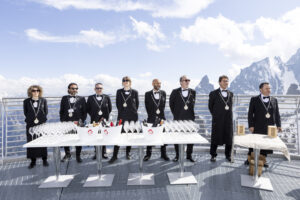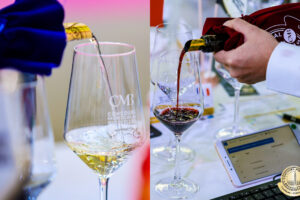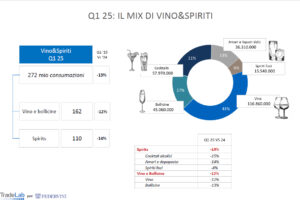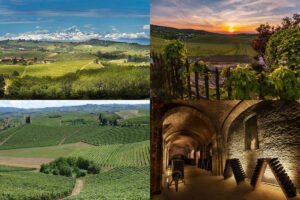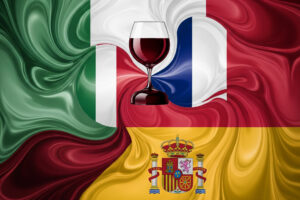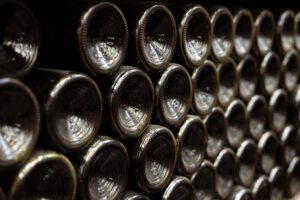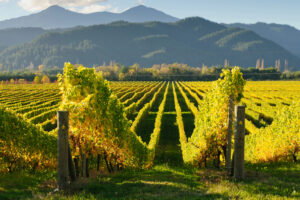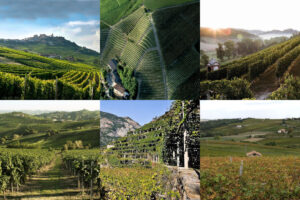At the wine event, “Matter of Taste” 2023, held recently in Zurich, some of the main topics discussed included the world of wine criticism that has added more and more voices, the very important value of sustainability that is not linked to judging the quality of wine in the glass, and the diversity of wines around the world, especially Italian, French and Spanish, which each have their own value, in the right context. WineNews, in addition to tasting great wines from all over the world and Italy (the largest “representation”), also met the entire staff of “The Wine Advocate”, the most influential wine criticism magazine in the world. The magazine was founded by Robert Parker, who profoundly changed, or rather invented wine criticism and the “100-point system”. We began the interview with Joe Czerwinski, who in addition to being Editor-in-chief of the magazine and a long-time wine critic, reflecting on the world of wine criticism, and on how it has changed over the years.
“I have been tasting wine professionally for 25 years, and many things have changed since I started. One of the things that has changed the most is the number of wine critics, and wine voices. There are bloggers, influencers, and many publications. In other words, it the panorama is much different from what it was before”. Therefore, it has become crucial to be more authoritative and have more in-depth knowledge about the territories and wines. “Our perspective, as “The Wine Advocate”, Joe Czerwinski explained, “is to give the consumer the opinion of a team of experts. It's not like asking a friend’s opinion on the street. Come to us and you'll get the opinion of a different expert for each wine region”.
Speaking of territories, Czerwinski has reviewed the Napa Valley territory, which is the benchmark for Californian and American wine. And, common opinion sees it as an “almost uniform” territory of intense wines that are all very similar. But, there is a general trend of things changing all over the world, and it is happening here as well. “In Napa Valley it is mainly Cabernet Sauvignon. Moving towards the warmest part of the territory, literally downstream, we have more robust wines with more body, while, instead, moving to higher altitudes the wines are more elegant. In other words, even Napa Valley is changing, and giving more importance to wines that express freshness and elegance, compared to 5 or 10 years ago”. Fires and water shortages, however, are widespread in Napa Valley and California in general, and they are, unwillingly, the symbols of how climate change is also impacting wine, which necessarily brings up the very broad and more and more vital issue of sustainability.
“The Wine Advocate” decided a few years ago to award the “Green Emblem” to those wineries that stand out for their sustainability projects (and up to now, in Italy, the award has gone to Tasca d'Almerita, Salcheto and Alois Lageder, in the first, and then to Avignonesi, Chiara Boschis and Arianna Occhipinti, in the second edition). One wonders, though, whether the judgment, that is, the rating of wines is linked to the issue of sustainability, and Czerwinski's answer is clear. “We introduced the “Green Emblem” two years ago, to certify and reward the wineries that are making real efforts in the direction of sustainability. It is a very important issue for us, because we want the earth to be an even better place to live. Sustainability is fundamental, but we needed a separate parameter from wine criticism, because our evaluation of wine is based solely on what is in the glass — balance, longevity, intensity, complexity, and so on. Perhaps these qualities in wine may depend on how the wine is produced, though it is equally important for us to keep judgment on wine separate from judgment on sustainability. It is true that many good wines are produced by wineries that have received the “Green Emblem”, and perhaps the sustainability of the work in the vineyard and in the winery has something to do with it, or perhaps not. Wine quality and sustainability are two things that can go hand in hand, but not necessarily”.
“The Wine Advocate” is now owned by the Michelin Group, which also publishes the most famous restaurant guide in the world. And, it has brought together the most influential and respected wine and restaurant critiques. Each one, of course, is completely autonomous in their work, which is different. “We definitely share values; the Michelin Guide has the “Green Star” for instance, and we have the “Green Emblem”. But we each work independently, according to our own canons and methods, to better develop our respective focuses and projects”.
As regards wine, France and Italy are without a doubt the two Countries that dominate the world wine scene. Be that as it may, every wine from every part of the world, Joe Czerwinski replied, has its own importance. “There are many interesting wines from both Countries, for me, but I would also add Spain and all the rest. Italian wines are interesting in some contexts, French ones in others, and Spanish ones in still others, and so on. And, this is the beauty of wines. You can have many different styles that vary according to their origin, and they can all be delicious, in their taste, their ability to combine with different foods, and different convivial contexts”. Take Joe Czerwinski’s word for it.
Copyright © 2000/2025
Contatti: info@winenews.it
Seguici anche su Twitter: @WineNewsIt
Seguici anche su Facebook: @winenewsit
Questo articolo è tratto dall'archivio di WineNews - Tutti i diritti riservati - Copyright © 2000/2025












